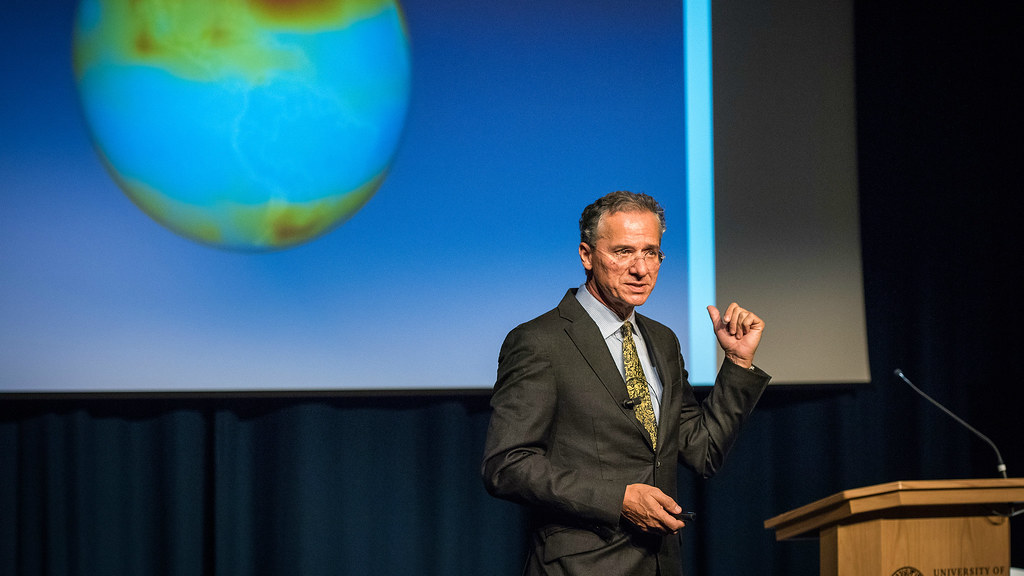One of the world’s leading experts on international agreements to tackle climate change has cautioned against the chances of success for the Paris deal to reduce greenhouse gas emissions, which comes into force in early November.
Speaking after receiving an honorary degree at the University as part of the 50th anniversary celebrations, Professor Scott Barrett from the Earth Institute at Columbia University in New York said that the Paris agreement signed in 2015, like previous ones at Kyoto and Copenhagen, had been successfully negotiated because of its voluntary targets for signatory nations and a lack of means of enforcing compliance.
‘Let’s not be bewitched by this because this is not a great agreement. It’s not. I’m not putting it down or saying we shouldn’t do it – we should do it and make the most of it, of course, but we need to do much better than this,’ he told students, academics and members of the public at a lecture, organised by the Institute for Policy Research (IPR) and Department of Economics.
‘You make an individual pledge for what you are willing to do. There’s no negotiation about the numbers, so that’s why Paris succeeded,’ said Professor Barrett. ‘You really couldn’t have done much more than that given that the world decided to approach the problem this way. What I want to get at is that we could have approached the problem differently.’
Professor Barrett insisted that the long-term approach to climate change since the 1990s had been flawed. ‘I think it is fair to say that the full effect of 25 years of unprecedented negotiations is basically very close to zero,’ he added. ‘We can and should develop other agreements that ask countries to coordinate their actions rather than to reduce their emissions voluntarily. Countries are good at coordination, and not so good at volunteering to act in their collective interests.’
Other successful international action had been achieved thanks to co-ordinated moves by individual nations, for instance victory in World War Two, the Montreal Protocol in 1987 to reduce CFCs and protect the ozone layer, and the elimination of smallpox, which Professor Barrett called ‘the greatest achievement of co-operation in human history’.
Professor Barrett told his audience that it was ‘outrageous’ that so little had been done to investigate and coordinate at an international level the technology of ‘carbon sequestration’ and geoengineering techniques to extract carbon dioxide from the atmosphere and to bury it underground or in rocks.
Following the lecture last week, Professor Barrett joined Professor Michael Finus, Head of the University’s Economics Department, at a workshop to discuss the latest work by the most promising young researchers of the Department. Professor Scott was very impressed by the depth and breadth of the research conducted at Bath and said that he would be pleased to return soon.
At the weekend, more than 150 countries reached a deal, described as 'monumental', to phase out gases that are making global warming worse. Hydrofluorocarbons (HFCs) are widely used in fridges, air conditioning and aerosol sprays. Delegates meeting in Rwanda accepted a complex amendment to the Montreal Protocol that will see richer countries cut back their HFC use from 2019.

